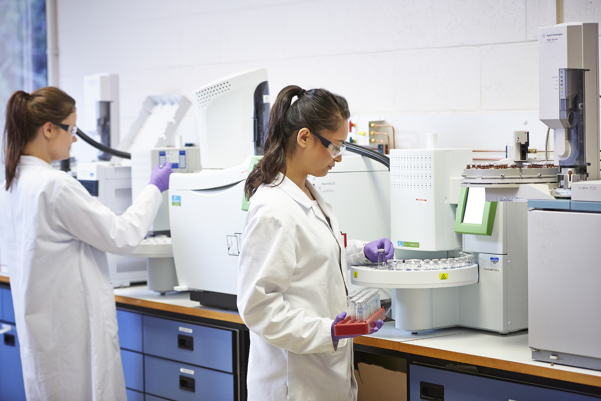Residual solvents testing

Residual solvent testing in the pharmaceutical industry is an essential quality control process that ensures the safety and integrity of pharmaceutical products. Residual solvents refer to any volatile organic compounds (VOCs) that may remain in a drug substance or drug product after the manufacturing process. These solvents can come from various sources, such as the synthesis of the active pharmaceutical ingredient (API) or from the formulation process itself.
The United States Pharmacopeia (USP) and the International Council for Harmonization (ICH) has defined the permitted daily exposure (PDE) limits for frequent solvents in USP <467> and ICH Q3C guidance. The residual solvents are categorised into three classes based on the toxicity levels, with limits depending on the route of administration and the daily dosage of the drug.

RSSL has vast experience carrying out analysis for Class 1, 2 and 3 residuals in accordance with the applicable pharmacopoeia. We can offer screening of Class 1 and 2 residuals and specification determination of Class 3 residuals as stated in the EP/USP. A certificate of analysis to GMP is provided on approval of results. RSSL can also analyse on sample matrixes that indicate failures of said residuals as well as develop and validate tailored methods for specific solvents of interest.
We perform all residual solvent methods in accordance with pharmacopeia methods. RSSL uses headspace gas chromatography with flame ionization detection (HS-GC-FID). This technique allows for the separation and quantification of residual solvents present in the drug substance or drug product. Due to our extensive capacity, RSSL can offer faster turnaround times on request.
Residual solvent testing is an integral part of pharmaceutical quality control, as excessive amounts of certain solvents can pose health risks to patients. Our accurate and reliable data can help you make informed, quick decisions and create appropriate risk assessments for your product. It helps to ensure that pharmaceutical products are safe, pure, and suitable for their intended use. By adhering to the guidelines provided by regulatory authorities, manufacturers can maintain product quality and patient safety throughout the drug development and manufacturing processes.
• Extensive experience in residual solvent pharmacopeia methods
• Fast turnaround times
• Trustworthy and robust data
• Flexibility to customise offerings to suit clients’ requirements